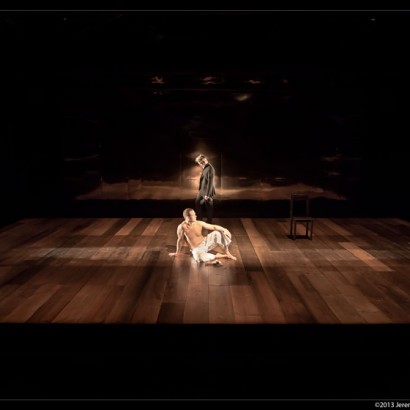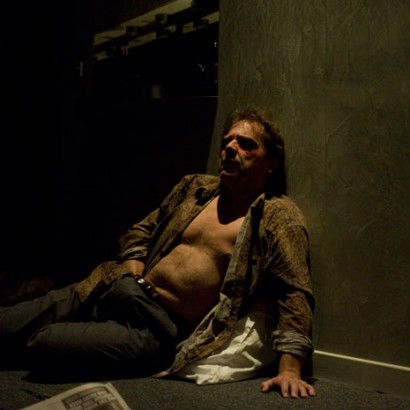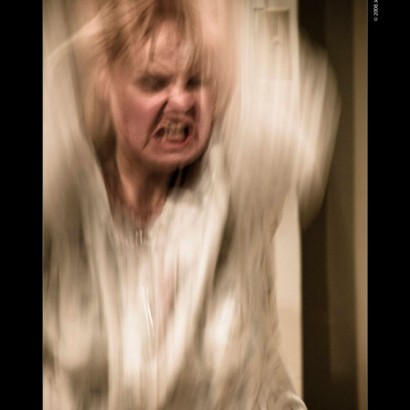Our artistic director, Brendan Healy, offers some thoughts on the question “Why Theatre?”.
With each production that I create, each new play that I workshop, and each play that I read, I begin with the question, why theatre? Allow me to clarify: We live in an age of consumerism, where the arts are continually asked to justify their existence. My question “why theatre?”, however, has NOTHING to do with validating the worthiness of an artistic response to anti-humanist political agendas. I refuse to engage in discourse around issues such as “the economic and social values” of art, the “creative economy”, and so on. I ask myself “why theatre?” because the attempt to answer that question always connects me to the core human impulse behind what we do.
Over the years of asking myself “why theatre?”, I have come to identify seven primary human needs[1] that I believe the theatre satisfies. In Hebrew, the word seven is from a root word meaning to be “complete or full”. I believe that the theatre, in meeting these seven needs, completes our humanity.
- Interdependence: From the rehearsal process to the experience of live performance, the theatre presents the world with a working model of cooperation, collectivity and community. This makes the theatre essential to a world where the pursuit of individual wealth and consumerism is leading us to economic, environmental and cultural collapse. The theatre provides citizens with a space to experience the joy of togetherness.
- Empathy: One of the most powerful pieces of theatre that I have seen was a show entitled Rwanda 94 created by a group of survivors from the Rwandan genocide. Over six hours, these survivors, witnesses, musicians and actors told the horrific story of that nation’s encounter with mass murder. The physical presence of these people who had faced unspeakable darkness prevented me from dissociating myself from the experience; I could not hide behind the protective veil of television or film. I left the theatre transformed. This show truly taught me that the proximity, ‘liveness’ and immediacy of the theatre allow us to directly experience the world of another person and to learn – intellectually and emotionally – about others. The theatre taps and develops our capacity for empathy.
- Entertainment: One cannot ignore or underestimate the power of entertainment in the theatre. We all seek diversion from the normal patterns of our lives. In being entertained, we escape our daily situations and gain some perspective on our existence. A great piece of theatre that combines entertainment with artistry, intelligence and complexity reveals truth about the human condition and inspires us to become better people.
- Spectacle: As humans, we need to believe that things are larger than us. The unique power of spectacle in the theatre lies in the fact that the scale of theatre is limited by the scale of our bodies and that the theatrical event occurs live, in real time, in front of our very eyes. When spectacular things happen on stage, the stunning potential that lies within our own corporeality is revealed.
- Ritual: As a young boy, I did not go to church for god – I went to sit, kneel and stand with a group. The repetition of the group event gave my life meaning by creating a sense of familiarity and order to my existence. Similarly, the communal and ceremonial nature of the theatre event fulfills a profound yearning for ritual in our lives. I seek to honor this aspect of the theatre at every juncture of the creative process, from rehearsals to performances.
- Engagement of the imagination: Years ago, I created a children’s play. At one point in the show, a character delivered a short monologue that recounted the story of a pirate ship sinking after being attacked by a whale. It was simply told with the usual gusto found in children’s theatre. After each performance, there was a talk-back where the kids were asked to share their favorite moments in the show. Almost always, a child would talk about the moment when the whale came on stage. We never actually had a physical representation of a whale in the show – the actor only spoke about it during his monologue. This taught me a valuable lesson. Theatre does not happen on stage, it happens inside the audience’s head. Great theatre invites an audience’s creative participation by inciting them to build a world around what is happening on stage with their imagination. The theatre allows the audience to be active creators in what is being presented to them as opposed to simply being passive receivers.
- Transformation: At its most elemental, theatre is about transformation. The actor is transformed by the character. The character is transformed by the plot. The audience is transformed by the experience. In theatre, we find confirmation that human transformation is possible.
I often choose plays that venture into uncomfortable or unknown territory. I am driven by the desire to find new approaches to performance, to present alternative points of view, to question established norms and to push boundaries. As I delve into the unfamiliar, this list is my anchor. It reminds me that the pursuit of theatrical innovation is, in fact, an attempt to reengage with the original power of the theatre and to renew this gloriously ancient form. The original definition of the word “radical” is relating to, or proceeding from a root – this is my work as a director.
[1] Special thank you to Anne Bogart for inspiring the format of this list and thank you to the countless mentors, thinkers and collaborators who have led me to these notions.
- Michael Dufays in Arigato, Tokyo
- Michael Dufays in Arigato, Tokyo
- David Ferry in Blasted
- Karin Randoja in Breakfast
- Kimberly Persona in Of a Monstrous Child: a gaga musical
- Nina Arsenault in The Silicone Diaries







I really want the theatre I see to engage me in something new, to give me insight into other elements of life and to demonstrate how they understood each work and how they chose to represent it.
Pingback: Brendan Healy on The 20th of November. — Buddies in Bad Times Theatre